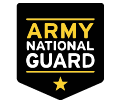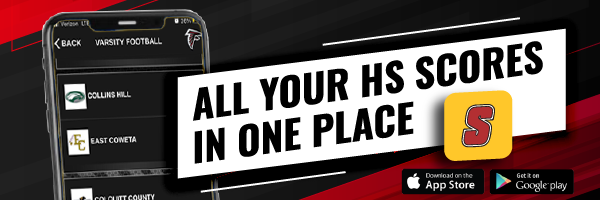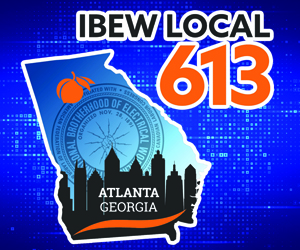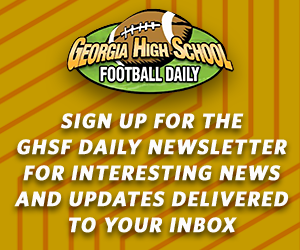
The GHSA announced Monday to allow student athletes to profit from their name, image and likeness, becoming the 30th state to vote on NIL deals for its athletes.
The move caps a plan which began in the GHSA spring meeting and according to GHSA Executive Director Robin Hines, the deals will be watched carefully to avoid ‘pay for play’ issues seen at higher levels of the sport.
“We’ve seen what’s happened in college, and it’s been a train wreck,” Hines told the AJC. “We’re just trying to put guardrails up to keep us from going off the tracks.”
The worry is that the NIL deals will be used by schools to recruit players from one school to another school under the guise of an NIL deal, a concern that’s been voiced by many coaches leading up to the decision.
According to the GHSA plans, that issue – and the collectives created by schools to ‘buy players’ — will not be allowed.
“It will be a challenge initially, just like it is on the college level. There are some words that will probably need to be changed, because people always try to find a way to circumvent the process, unfortunately,” Jasper Jewell, Director of Athletics for Atlanta City Schools, told the AJC. “I think the GHSA has done and will continue to do a good job monitoring it.”
Several coaches at the Corky Kell + Dave Hunter 7-on-7 Tournament at Georgia Tech over the summer were asked their thoughts on the possible NIL deals.
“(The NIL) would take the innocence away from high school football,” said Miller Grove head coach Melvin Brown. “We watch what’s going on in college football now, with all that frenzy and stuff, and if it trickles down to high schools, it’d be a big mess. When you get to the college level, it’s a business, more than it is at the high school level. I tell my kids now, ‘enjoy high school football, this is fun. Because when you get to the next level, it’s all business.’ That trickles down to the high school athletes, and it takes all the energy away from high school football. And it could hurt inner-city schools that might not have the resources that other programs have. It’s just too lopsided at the high school level, and it would just take away from the innocence of the amateur game.”
Ryan Walters, the Tift County offensive coordinator, adds that the GHSA has enough trouble focusing on and regulating certain things now, and the NIL deals might be impossible to track.
“I think (NIL) would be difficult because I think less about whether they’re deserving of the money. I mean, the players do generate a lot of interest in a lot of their schools, and the schools do make a lot of money off of that,” Walters said.
“I think there’s a whole host of other issues that you’d have to address first. Is this really like high school football? I was in Texas for four years before I came here, and the way that recruiting gets done here … I think mixing NIL into that makes it hard. Some of that kind of stuff at the high school level, like regulating (a bona fide move) and all those kinds of things, (NIL) would create a whole other set of issues. I do think it would become a lot more like the college level, where it is clear (what schools) are offering what. I think there’s a time and a place maybe for some of the money because certainly there’s a lot of value that high school football players in Georgia give to their respective schools.”
The list below shows which states allow NIL deals and those which do not allow them.
Allowed
Alaska
California
Colorado
Connecticut
District of Columbia
Georgia
Idaho
Illinois
Iowa
Kansas (limited)
Louisiana
Maine
Maryland
Massachusetts
Minnesota
Nebraska
Nevada (limited)
New Hampshire
New Jersey
New Mexico
New York
North Carolina
North Dakota
Oklahoma
Oregon
Pennsylvania
Rhode Island
Tennessee
Utah
Virginia
Washington
Not allowed
Alabama
Arkansas
Delaware
Florida
Indiana
Kentucky
Michigan
Mississippi
Missouri
Montana
Ohio
South Carolina
South Dakota
Texas
West Virginia
Wisconsin
Wyoming
Unclear
Arizona
Hawaii
Vermont











































